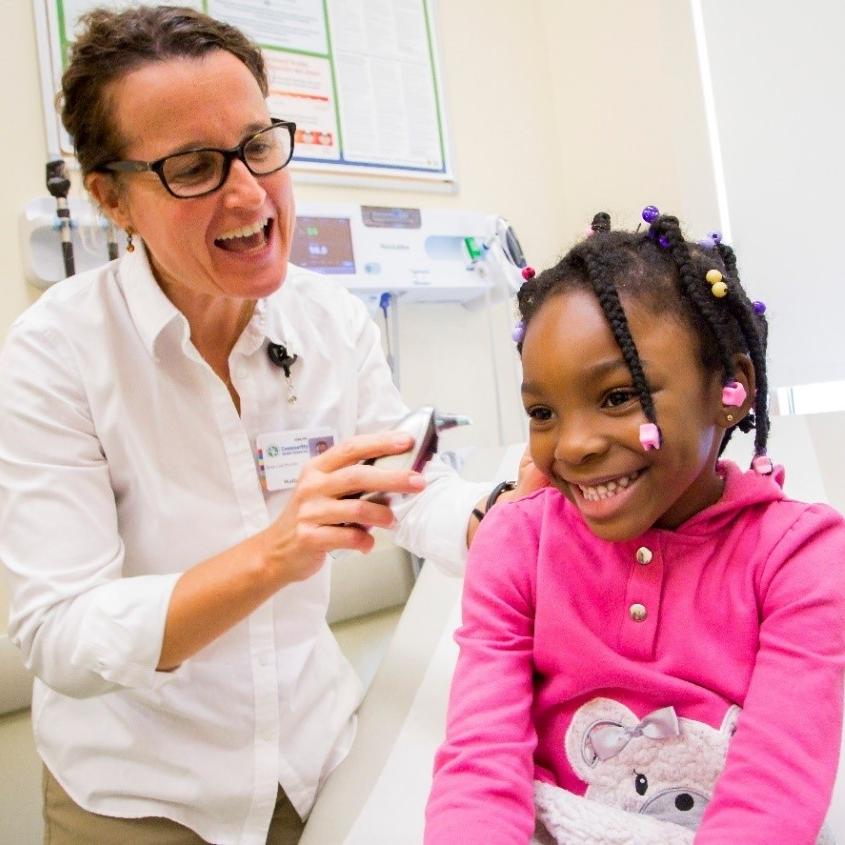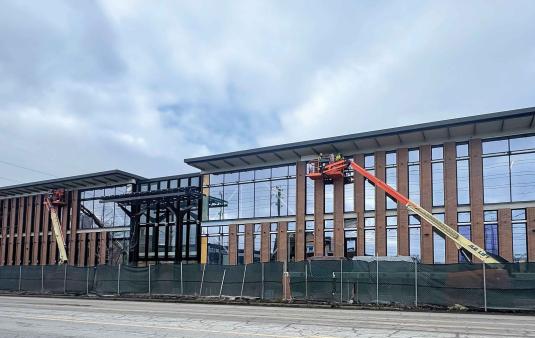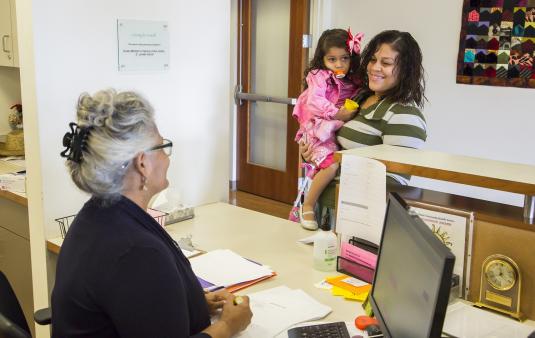Almost 50 years ago, Community Health Center, Inc. (CHC) was founded as a walk-up dental clinic with a single chair. Today it serves 100,000 people across Connecticut, at 14 sites, 100 schools, and wherever its mobile “Where You Are” program finds them.
“The need is acute. Most of our patients are at or below the poverty level—and we take anyone who needs care,” says Leslie Gianelli, Vice President, Communications. Of course, now CHC offers much more than dental care. It provides medical and behavioral healthcare, and is initiating workforce development and telehealth programs, establishing best practices, and delivering training across the United States. “From pretty humble beginnings we’ve expanded to be one of the largest community healthcare providers in the country,” Gianelli says.
Indeed, CHC is the only US community healthcare center to have founded its own research arm, the Weitzman Institute, to explore how CHC can provide healthcare as effectively as possible. In the process, the Center has developed a host of programs that healthcare organizations from Hawaii to Maine have adopted.
The National Institute for Medical Assistant Advancement is a perfect example.
“Our patients are often extremely complex medically,” Gianelli explains. “They don’t have regular medical appointments. They may have underlying behavioral health conditions. Often medical assistants weren’t trained to handle these cases and were overwhelmed. So, we developed a school to teach them. It caught on nationally and is now used in six states.”
Creating and distributing programs is just the start. “Health centers invite us in to do quality improvement training, and delegations come from around the country to observe what we do and share their knowledge with us,” says Gianelli. Not surprisingly, space at CHC is at a premium and BlueHub has helped address that.
“BlueHub’s financing allowed us to build a new larger clinic in a medically underserved area of Stamford, to renovate our Hartford clinic, which is the largest pediatric practice between Boston and New York, and to build our new Knowledge and Technology Center,” says Mark Masselli, CHC’s founder and president. “This financing and subsidy were critical to all three construction projects, enabling us to significantly expand the number of low-income individuals for whom we can provide critical healthcare services.”
These building projects are also economic engines for the low-income communities they serve, creating over 100 permanent new jobs and retaining 160 jobs; they also created construction jobs during the course of building.
CHC was well prepared to navigate the uncharted territory brought on by COVID-19.
In early March 2020, as the pandemic was gaining force, CHC knew their patients across Connecticut would need a new way to connect with their healthcare providers. They discussed the benefits of telehealth but had not implemented it. COVID-19 changed that. “Losing touch with our patients was unacceptable. We transitioned our entire practice from a traditional face-to-face model to a telehealth model in a week,” says Gianelli. “For us, telehealth includes both video and audio. Within our patient population, not everyone has Wi-Fi access or even a smartphone.” The change is likely to have lasting consequences. “Our patients really like being seen via telehealth. They like not having to take time off work, to find transportation, to sit in the waiting room. I have no doubt that telehealth will continue to be an option,” Gianelli said.


